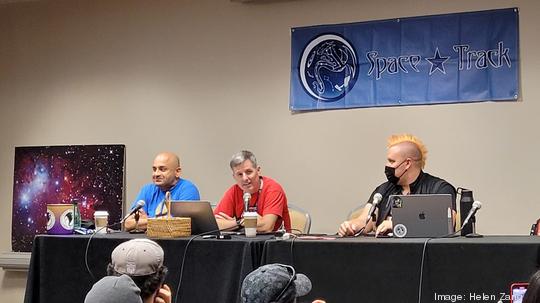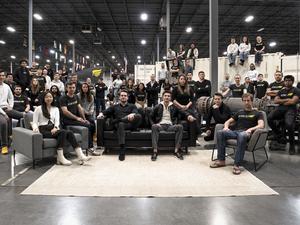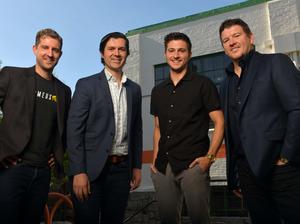
Georgia is no alien when it comes to the commercialization of technologies for space exploration.
Home to 800 aerospace companies, it ranks as the fifth-largest aerospace export state in the country, and its universities receive $50 million a year for aerospace research, according to the Georgia Center of Innovation.
These facts were showcased at Dragon Con, one of the country's largest pop culture events, drawing 65,000 to Downtown Atlanta over Labor Day weekend. The 35-year-old event has also evolved into an important stage for discussion of potential commercial applications in fields including aerospace.
Consider satellites. They have dramatically shrunk in size and cost over the years, similar to how computers have gone from the size of a whole room to fitting inside a pocket. Once costing hundreds of millions, satellites can cost around $1 million and be the size of a toaster oven.
Consequently, the number of them in space have sharply grown. This has created a greater need for replacement components and transferring data. By 2028, the market for upgrading smaller satellites is expected to more than double to $10.7 billion, according to research firm Fortune Business Insights.
It has expanded opportunities for Georgia companies such as SpaceWorks Enterprises Inc., an aerospace manufacturer based in DeKalb County. CEO John Bradford believes the sector is poised for a wave of investment.
"Satellite servicing and in-orbit experiments are the next thing," Bradford said.
Venture capitalists have caught wind of the growing satellite market as well. Last year, satellite-centered businesses including Spire Global, Planet and Black Sky went public through special purpose acquisition company (SPAC) mergers.
Bradford's company is aiming to meet that demand with its spacecraft docking and connection device named FuseBlox. The device, which was commercialized earlier this year, is used to support space missions by making repairs and connecting data on in-orbit satellites. The company sells the devices to small satellite operators, commercial companies who look to assemble or build objects in space. Bradford declined to identify those companies.
Under a Small Business Technology Transfer grant worth $240,000, SpaceWorks has also partnered with the Georgia Institute of Technology to work on its satellite projects. While students perform research into particular areas, the company creates practical solutions.
NASA has a history of turning products for space exploration into unlikely commercialized products. Memory foam was originally invented as a way to make aircraft cushions safer, while the technology behind wireless vacuums known as Dustbusters was initially designed to extract samples from the moon’s surface.
“The tricky thing is you never know what’s going to be the commercial application,” said Trina Ray, a senior science systems engineer at NASA’s Jet Propulsion Laboratory, at Dragon Con. “When we did research on electrons, nobody thought that would become computers.”
SpaceWorks is one of a few Georgia-based businesses that are poised to see growth from the small satellite trend.
Gwinnett County-based DataPath Inc. provides network monitoring software for satellite operators, according to its website. Atomic-6, which manufactures components that are lightweight and efficient for the aerospace industry, went out of stealth mode earlier this year.
“They are sending more satellites in the next two years than ever in human history, so there’s clearly a growing demand,” Atomic-6 founder Trevor Smith previously told Atlanta Inno. “If we have the best manufacturing in the world, that gives the potential to sell in multi-billion dollars.”







